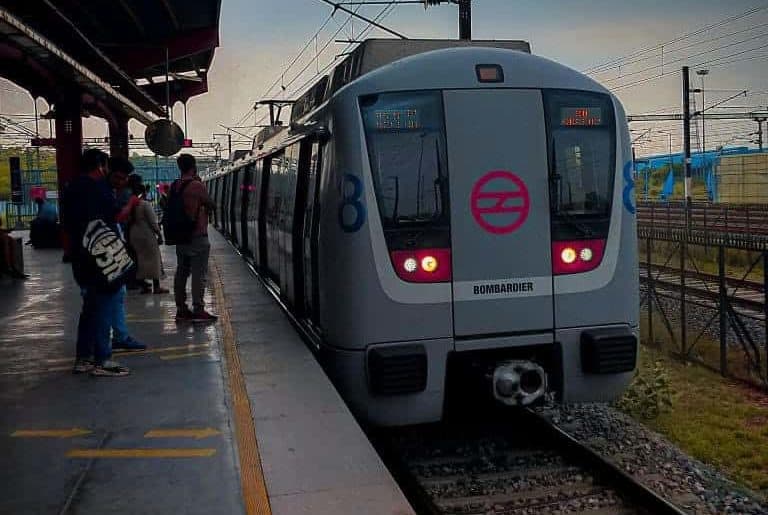The Delhi Cabinet finally passed the bill approving free travel for women in the Delhi Metro leading to multiple debates and discussions.
After about five months since the introduction of the Bill by the Aam Aadmi Party (AAP) Government on 11th October, the Delhi Cabinet approved free travel for women in the metro in the national capital. This scheme, announced by Chief Minister Arvend Keijriwal on 3rd June, will be effective from 27th October 2019, the auspicious day of Diwali.
The cabinet approved a grant of INR 980 crore to the Delhi Metro Rail Corporation (DMRC) to implement the scheme. The cabinet also provided a grant of INR 7 crore to add 380 more feeder buses to the existing number of 194.
In certain studies, it is noted that in the Delhi Metro, women passengers account for almost 25-30 per cent. The average farebox revenue per rider was noted as INR 28, according to the annual report of the DMRC for the year 2018-19. This amounts to almost one-third of DMRC’s total revenue.
“I travel every day from Ghaziabad to South Campus via the metro, which amounts to roughly INR140 per day. A huge amount is spent by my parents every month on my travel expenses. They have been resentful towards the idea of sending my younger sister to a college far from home. This new scheme by the government has given my sister a new hope,” says Rasmila, a student at Jesus and Mary College.
The new scheme also provides a safer mode of transportation to women. “As of now, only 30 per cent of Metro commuters are women. The fare hike last year hit women the worst, forcing them to shift to more unsafe modes of transport like private buses, ride-sharing, or even walking. This move will help them return to the Metro’s safety,” says AAP’s Ashiti on her Twitter account.
However, despite all the support gained by a larger public, the scheme has also received a whole lot of criticism suggesting issues like overcrowding, or a probable drop in the quality of services due to erosion of DMRC funds. Some argue that the money that the Government wants to spend on free metro and bus travel should have been used to improve security infrastructure and uplift women safety in the city.
The idea of free public transport has been experimented across many cities around the globe in the USA and Europe like Germany, Belgium and France. The initiative was taken either for the entire population or for a few sections such as students or senior citizens. The reaction and impact on the use of private cars and increased use of public transport have been mixed.
There is huge anticipation regarding the final execution of this ground-breaking scheme. The effectiveness of the same can only be interpreted for now.
Disclaimer: Bazinga is our weekly column of almost believable fake news. It is only to be appreciated and not accepted!
Feature Image Credits: Hitesh Kalra for DU Beat
Aditi Gutgutia

